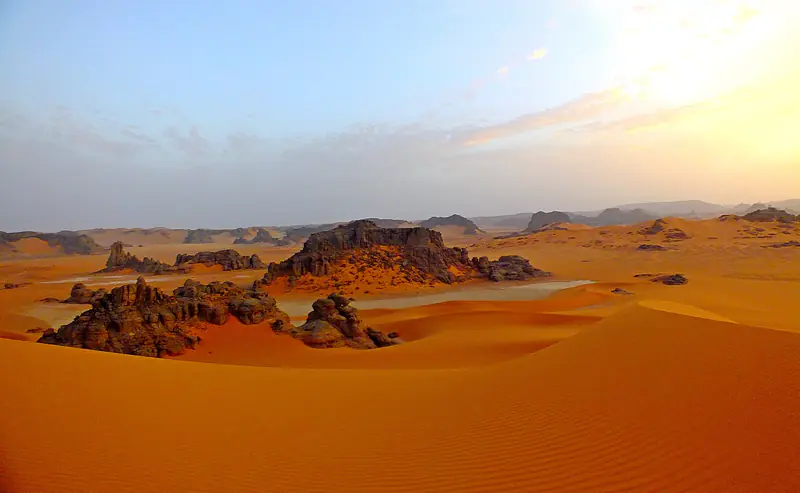UNESCO World Heritage Sites in Algeria
Heritage Overview
Algeria's UNESCO World Heritage sites represent a remarkable intersection of ancient civilizations, colonial history, and extraordinary natural landscapes spanning diverse ecological zones. The country preserves some of North Africa's most significant archaeological treasures, showcasing millennia of human settlement, trade, and cultural exchange across Mediterranean and Saharan regions. Ancient Roman settlements demonstrate sophisticated urban planning and architectural achievement, reflecting the prosperity and strategic importance of North African provinces within the Roman Empire. Pre-Roman civilizations left distinctive burial monuments that provide insights into early Saharan cultures and belief systems. The heritage encompasses both coastal Mediterranean zones and dramatic desert landscapes with prehistoric rock art galleries. Islamic architecture and traditional settlements showcase distinctive regional building techniques adapted to harsh climates, featuring ingenious water management systems and defensive structures. The Saharan sites preserve exceptional concentrations of rock art spanning thousands of years, documenting climate change, wildlife evolution, and human adaptation across North Africa. Together, these sites illustrate Algeria's position as a cultural crossroads, connecting Mediterranean civilizations with sub-Saharan Africa through trans-Saharan trade routes that shaped regional development for centuries.
Essential Information
Visa Requirements
Most foreign visitors require a visa to enter Algeria, which must be obtained before arrival from Algerian embassies or consulates. Tourist visa applications typically require invitation letters from Algerian travel agencies or sponsors, hotel reservations, and proof of sufficient funds. The process can take several weeks, so early application is essential. Some nationalities including Malaysian and Seychelles citizens can obtain visas on arrival. Business and cultural visas have different requirements. Algeria does not currently offer electronic visa services for tourists. Ensure your passport has at least six months validity beyond your intended stay and contains blank pages for visa stamps.
Currency
The official currency is the Algerian Dinar (DZD), with currency exchange tightly controlled by the government. Foreign currency must be exchanged at authorised banks, hotels, or official exchange offices, with declarations required for amounts exceeding €1,000. Credit cards are accepted primarily in major hotels and some larger establishments, but cash remains essential for most transactions. ATMs exist in cities but can be unreliable, and international cards may not always function. Bring sufficient euros or US dollars for exchange. Black market currency exchange is illegal and should be avoided. Keep all exchange receipts as they may be required upon departure.
Language
Algeria has two official languages: Modern Standard Arabic and Tamazight (Berber). Algerian Arabic (Darja) is the everyday spoken dialect, differing significantly from Modern Standard Arabic. French remains widely used in business, education, and tourism, particularly in northern regions, making it the most practical second language for visitors. English proficiency is growing but remains limited outside major hotels and tourist services. French-Arabic bilingual signage is common in cities. Learning basic French phrases greatly facilitates communication. In remote Saharan regions, Tamazight dialects predominate. Tour guides typically speak French, with English-speaking guides available through specialist operators.
Climate
Algeria experiences diverse climates across three distinct zones. The Mediterranean coast enjoys hot, dry summers reaching 30-35°C and mild, wet winters averaging 10-15°C. The High Plateaus region experiences continental climate with temperature extremes, cold winters occasionally below freezing, and hot summers. The Sahara Desert covers over 80% of Algeria, featuring extreme heat exceeding 45°C in summer and cold winter nights falling below 0°C. Coastal regions receive most rainfall between November and March. The best visiting period is spring (March-May) or autumn (September-November), offering moderate temperatures while avoiding extreme summer heat or winter cold.
Featured Heritage Sites
Last updated: 11 December 2025
